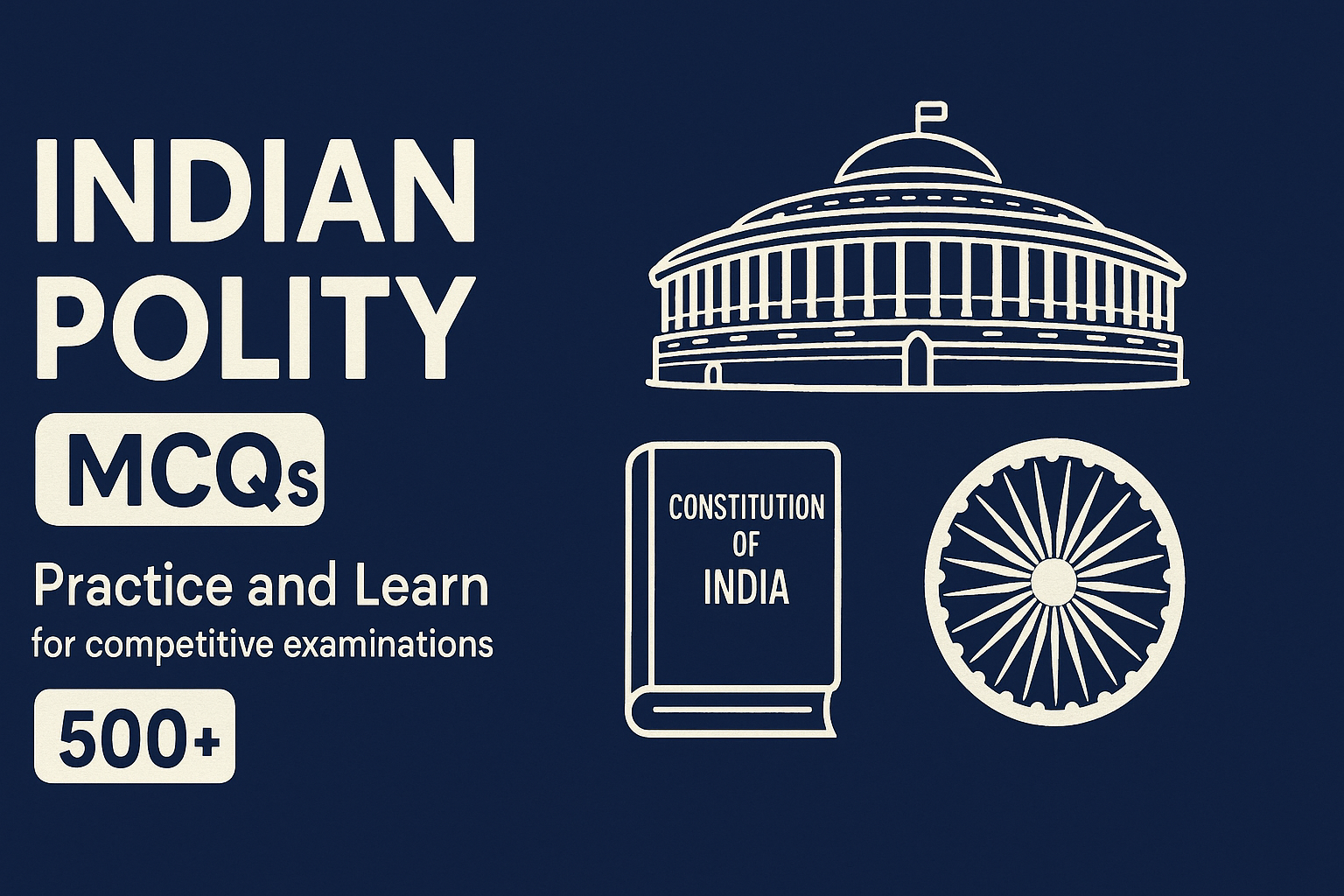
MCQ on Constitution of India and Indian Polity
A local area with more than 12,000 and less than 40,000 inhabitants is classified as:
Which part of the Constitution of India deals with Panchayati Raj Institutions?
The Grants-in-Aid to Panchayati Raj Institutions are met by State Governments from their:
How many fundamental rights are guaranteed by the Constitution of India?
Which of the following statements are correct in respect of Article 243 of the Indian Constitution?
On which of the following grounds can restriction on the freedom of speech and expression NOT be imposed?
Which among the following is not correct?
Choose the correct one (States and Panchayati Raj Institutions):
| State | Panchayati Raj Structure |
|---|---|
| a. Andhra Pradesh | I. Gram Panchayat, Mandal Parishads, Zila Parishads |
| b. Arunachal Pradesh | II. Gram Panchayat, Anchal Samities, Zila Parishads |
| c. Assam | III. Gaon Panchayats, Anchal Panchayats, Zila Parishads |
| d. Tripura | IV. Gram Panchayats, Panchayat Samities, Zila Panchayats |
Which among the following Schedules are related with Panchayati Raj?
In the appointment of the Judges of the Supreme Court of India, the collegium consists of:
